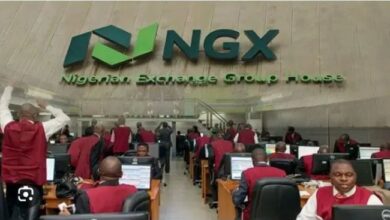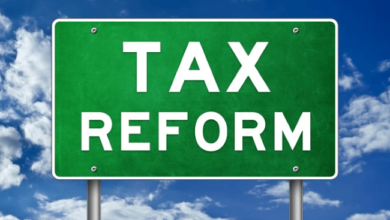‘CBN Will Cut Monetary Policy Rate, If…’– Emefiele
 The Governor of the Central Bank of Nigeria (CBN), Godwin Emefiele, has disclosed that the apex bank would move to further cut the Monetary Policy Rate (MPR) if inflation drops to a single digit.
The Governor of the Central Bank of Nigeria (CBN), Godwin Emefiele, has disclosed that the apex bank would move to further cut the Monetary Policy Rate (MPR) if inflation drops to a single digit.
The CBN Governor disclosed this while speaking on Bloomberg TV in London on Tuesday.
Recall that Emefiele joined the Attorney General of the Federation, Mr Abubakar Malami and other top government officials as part of the delegation to the U.K over the court hearing of the on-going legal battle between the Federal Government of Nigeria and Process and Industrial Developments Ltd (P&ID).
While speaking on Bloomberg, Emefiele stated that the CBN was anticipating single-digit inflation of 9% or below before considering cutting the MPR, and according to the Governor, this would happen in the year 2020.
Emefiele’s statement reads: “How soon do I see interest rates coming down? I’m not seeing that coming this year. During the course of 2020, we may be able to see that but I can’t see that until we begin to see the numbers showing inflation is trending downward.
“Unfortunately it’s been sticky coming downwards as soon as it hit about 11%. The Monetary Policy Committee would love to see it at about 9% before beginning to aggressively think about easing.”
READ ALSO: Banks Worth $47 trillion Adopt New UN-backed Principles of Responsible Banking
At the last Monetary Policy Committee (MPC) meeting held on the 20th and 21st September, the CBN Committee decided by a unanimous vote to retain the Monetary Policy Rate (MPR) at 13.5% and to hold all other policy parameters constant.
According to the MPC, the positive moderation in inflation, though slowly from 11.08% in July to 11.02% in August 2019 almost compelled the MPC to tighten the rates. However, the Committee was of the view that doing so in the midst of a fragile growth outlook would increase the cost of credit, and further contract investment and constrain output growth.
On loosening, the Committee felt that this would result in increased system liquidity and hence, heighten inflationary tendencies in the economy.
In particular, the MPC was of the view that loosening would drive growth in consumer credit but without a corresponding adjustment in real sector output.
Hence, the Committee was also of the opinion that retaining the current position of policy offers pathways to appraising the effects of the suit of heterodox monetary policy to encourage credit delivery to the real sector, especially in the light of the subsisting implementation of the Loan to-Deposit Ratio policy.
READ ALSO: Nissan, Carlos Ghosn’ ll Pay $16 Million To Clear Fraud Charges–SEC
The disclosure by the CBN Governor slightly contradicts some experts’ opinions who see the CBN altering the rates before the year ends.
According to some experts, the CBN would mull cutting the rates at the next MPC meeting having observed how inflation responds to the recent border closures and other policy measures on importation.
According to findings, MPR is the interest rate at which CBN lends to commercial banks. The MPR is the benchmark against which other lending rates in the economy are pegged and is usually used as an instrument to moderate inflation in the economy. On the other hand, CRR simply refers to the ratio of customers’ deposits (i.e. your money in the bank) which banks are expected to hold as cash or keep with the CBN.
Liquidity ratio refers to the amount of highly liquid assets that banks should hold in order to meet their financial obligations to customers.
Samson Oyedeyi











